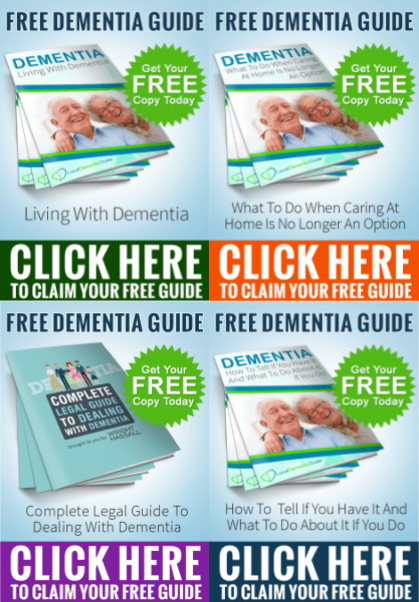
Dementia is a complex condition that affects millions of individuals worldwide. As a progressive neurodegenerative disorder, it can have a significant impact on cognitive function, memory, and daily life. Recognizing the early signs of dementia is crucial for timely diagnosis and intervention, allowing individuals and their families to seek appropriate support and care.
At Local Dementia Guide, we aim to provide valuable information to help you understand the early signs of dementia comprehensively. By recognizing these indicators, you can take proactive steps toward managing the condition effectively. In this article, we will delve into the most common early signs of dementia, shedding light on the subtle changes that may occur.
List of Signs of Dementia: Common Early Indicators
1. Memory Loss and Forgetfulness
One of the primary signs of dementia is memory loss, particularly short-term memory impairment. Individuals may find it challenging to remember recent events, appointments, or conversations.
Early diagnosis of dementia is often prompted by the presence of memory loss, as it is a common and noticeable symptom experienced by individuals in the early stages of the condition.
Memory loss, specifically short-term memory impairment, stands as a prominent hallmark of dementia. Additionally, people with dementia misplacing personal belongings and encountering difficulties in recalling familiar names or faces become common occurrences.
2. Difficulty with Language and Communication
Dementia can affect language and communication abilities. People in the early stages of dementia may experience difficulty finding the right words, articulating their thoughts, or following a conversation.
They may also exhibit repetitive speech patterns or struggle to understand complex instructions. These linguistic changes can be frustrating for individuals and may cause them to withdraw from social interactions.
3. Impaired Judgment and Decision-Making
As dementia progresses, individuals may exhibit impaired judgment and decision-making abilities. They might struggle with problem-solving, exhibit poor financial choices, or display a lack of judgment in social situations.
These changes can have significant consequences, and it is essential to be aware of them to ensure appropriate support and guidance.
4. Mood and Personality Changes
Fluctuations in mood swings and personality are often observed in individuals with dementia. They may experience increased confusion, irritability, or become easily agitated. Additionally, they might withdraw from previously enjoyed activities or exhibit uncharacteristic behaviors.
Understanding these emotional and behavioral shifts can help caregivers and loved ones provide the necessary care and support.
5. Difficulty with Everyday Tasks
Completing familiar tasks may become increasingly challenging for individuals with dementia. They may struggle with activities that were once second nature, such as cooking, managing finances, or driving.
Individuals with dementia, including vascular dementia, often encounter escalating challenges when attempting to perform once-familiar tasks. Everyday activities like cooking, managing finances, or driving may become increasingly arduous and perplexing.
The cognitive decline associated with dementia underscores the importance of promptly recognizing these indicators. Early detection enables appropriate adjustments in the level of assistance and support provided, ultimately facilitating a smoother journey for individuals affected by dementia, including those with vascular dementia.
This difficulty arises due to cognitive decline, making it crucial to identify these signs early on and adjust the level of assistance provided accordingly.
6. Spatial and Visual Perception Issues
Dementia can also impact spatial and visual perception. Individuals may have difficulty judging distances, reading, or interpreting visual information.
They may experience problems with depth perception, leading to difficulties with stairs, driving, or even recognizing familiar faces. Recognizing these signs is crucial for ensuring the safety and well-being of individuals with dementia.
7. Reduced initiative
In the early stages of dementia, individuals may exhibit a noticeable reduction in initiative, which can be attributed to the impairment of certain parts of the brain.
This reduction in the initiative can manifest as a lack of motivation or drive to initiate and complete tasks or activities that were once enjoyable or routine. The affected areas of the brain responsible for motivation, such as the prefrontal cortex and the mesolimbic system, may be compromised, leading to diminished interest and engagement in daily life.
Recognizing this symptom and its underlying neurological basis is crucial in understanding the challenges faced by individuals with early dementia and providing appropriate support and interventions to maintain their overall well-being.
8. Changes in sleep patterns
A person with dementia may experience notable changes in sleep patterns as the condition progresses. These changes can manifest in various ways, such as insomnia, frequent awakenings during the night, or daytime drowsiness.
Disruptions in the sleep-wake cycle can significantly impact the person's overall well-being, cognitive functioning, and behavior. They may become more restless or agitated at night, leading to increased confusion or disorientation. Additionally, the person may exhibit a reversal in their sleep schedule, being more awake and active during the night and experiencing daytime fatigue.
It is important to address these sleep pattern changes in individuals with dementia to ensure adequate rest and promote better cognitive and emotional health.
9. Repetitive behavior
Repetitive behavior is a common symptom seen in individuals with early dementia, and it shares similarities with other symptoms of the condition. People in the early stages of dementia may engage in repetitive actions, such as pacing, hand-wringing, or sorting objects repeatedly.
They may also repeat words, phrases, or questions persistently. This repetitive behavior can stem from a variety of factors, including anxiety, memory loss, or an attempt to establish routine and familiarity. It can be distressing for both the individual with dementia and their caregivers.
Understanding the underlying causes of repetitive behavior and implementing strategies to manage it, such as redirecting attention or providing engaging activities, can help improve the overall well-being and quality of life of individuals with early dementia.
10. Decline in personal hygiene
A decline in personal hygiene is a common symptom seen in individuals with early dementia, and unfortunately, it tends to get worse as the condition progresses. Maintaining personal grooming habits and hygiene routines becomes increasingly challenging for those affected and these symptoms may get worse.
Tasks such as bathing, brushing hair, or changing clothes may be neglected or forgotten over time. This decline in personal hygiene can be attributed to the cognitive changes and memory impairments associated with dementia. As the disease advances, individuals may struggle even more with initiating or organizing self-care activities, leading to a significant deterioration in their appearance and cleanliness.
Caregivers and family members play a crucial role in providing compassionate assistance, gentle reminders, and support to help mitigate the worsening of personal hygiene in individuals with early dementia. Their assistance can significantly improve the overall well-being, dignity, and self-esteem of those living with this challenging condition.
FAQ For Early Dementia
FAQ | Answer |
What is dementia? | Dementia is a term used to describe a group of symptoms that affect memory, thinking, and social abilities. It is caused by damage to the brain cells, which affects the ability of the brain to communicate with the rest of the body. |
What are the early signs of dementia? | The early signs of dementia may include memory loss, difficulty recalling names or words, mood swings, difficulty in completing familiar tasks, and social withdrawal. |
What are the common symptoms of dementia? | The common symptoms of dementia include memory problems, personality changes, difficulty communicating, trouble with reasoning or problem-solving, and problems with motor skills. The symptoms may vary depending on the type of dementia. |
What are the types of dementia? | The types of dementia are: Alzheimer's disease, vascular dementia, frontotemporal dementia, Lewy body dementia, mixed dementia, and other types. Each type has a different set of symptoms and affects different parts of the brain. |
How is dementia diagnosed? | Dementia is usually diagnosed through a series of tests, including medical history, physical examination, cognitive tests, and brain imaging studies. A doctor may refer the patient to a specialist for further evaluation and diagnosis. |
What are the risk factors for dementia? | The risk factors for dementia include age, genetics, lifestyle factors such as smoking, high blood pressure, diabetes, and high cholesterol. |
Can dementia be prevented? | While there is no sure way to prevent dementia, maintaining a healthy lifestyle, regular exercise, mental stimulation, and social engagement may help to reduce the risk of developing the disease. |
What is the difference between Alzheimer's disease and dementia? | Alzheimer's disease is a type of dementia and is the most common cause of the disease. Dementia is a term used to describe a group of symptoms, while Alzheimer's disease specifically affects memory and cognition. |
What are the stages of dementia? | The stages of dementia include early, middle, and late stages. Early dementia includes mild cognitive impairment, while middle and late stages include more severe symptoms such as increased memory loss and difficulty with motor skills. |
What should I do if I suspect someone has dementia? | If you suspect someone has dementia, it is important to encourage them to see a doctor for evaluation. Early diagnosis and treatment can help manage symptoms and slow the progression of the disease. |
Seeking Support and Further Information
If you or your loved one is experiencing any of these early signs of dementia, it is important to consult with a healthcare professional for a comprehensive assessment and diagnosis.
Early detection can provide the opportunity for timely intervention, which can significantly impact the progression and management of the condition.
At Local Dementia Guide, we understand the challenges faced by individuals and families affected by dementia. We provide a wealth of resources and information to guide you through this journey.
From practical caregiving tips to the latest research and treatment options, our aim is to empower you with the knowledge you need to navigate this complex condition.
Remember, every individual's experience with dementia is unique, and the progression of the condition may vary. By staying informed and seeking appropriate support, you can ensure a higher quality of life for yourself or your loved ones.

Check out our Dementia Guide resources for FREE
We have some great practical and informative FREE GUIDES to support you on your journey with dementia
